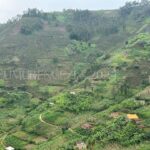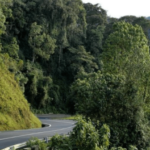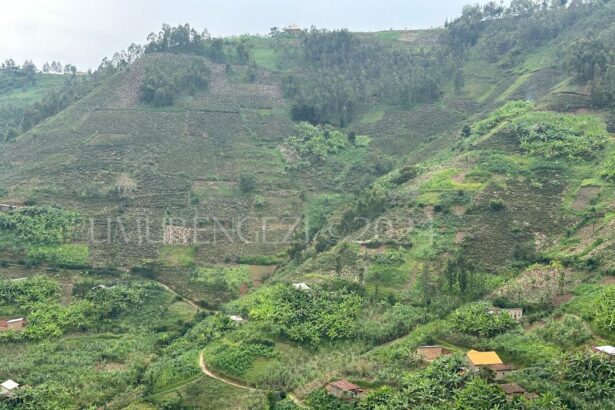Farmers in Gakenke District have increasingly turned to pineapple farming on the district’s steep mountain slopes, attracted by the crop’s profitability and rising demand. However, environmental experts are raising alarms over the potential long-term consequences of this agricultural practice, which may negatively impact both the environment and future generations.
The district’s hilly terrain, characterized by its steep slopes, poses a significant challenge for sustainable agriculture. Pineapple farming, though lucrative, often involves clearing stunted forests and vegetation to make possible for plantations. This leads to deforestation, which in turn increases soil erosion, reduces water retention, and exacerbates the risk of landslides during heavy rains.

The removal of trees and shrubs for the sake of pineapple, exposes soil to direct rainfall, causing topsoil to be washed away. This depletes soil fertility and affects the productivity of land in the long term.
Fertilizers and pesticides used in pineapple farming can seep into nearby rivers and streams, threatening aquatic ecosystems and the water supply for downstream communities.
- Advertisement -
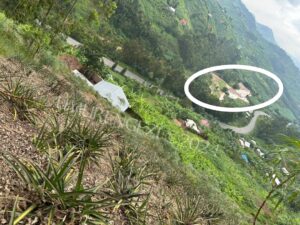
Nizeyimana Fils, pineapple farmer from Gashenyi sector in Gakenke District, told UMURENGEZI that farmers use their knowledge in pineapple cultivation and they will continue to expand arable land.
“This mountain was covered by stunted trees which were not productive. We are using our knowledge in pineapple cultivation, only extension services goes to beans and other crops. Until now, no consequences we faced caused by forest replacement to cash crop. We will expand arable land for pineapple and relocate forest where it can perform well.” Nizeyimana said.
Nzabandireba Celestin, a farmer for many years ago, back on mountain history in agriculture and told us evidences for poor plan on land use.
“Recently some fields were coffee, before was forest. We replaced them with pineapple to increase productivity. Pineapple retain water through mulching as forest did.”
Dr Emmanuel Nkurunziza, an environmental scientist, warns that if current practices continue unchecked, future generations in Gakenke District, could face reduced agricultural yields, water shortages, and a degraded environment.
“We must balance economic gains with sustainability. If we exhaust our resources today, we risk leaving behind barren land for our next generations.” Dr Emmanuel said.
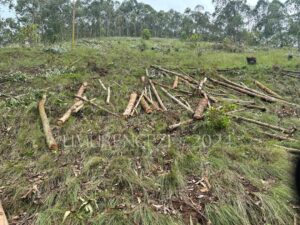
Murenzi Augustin, a director of Agriculture in Gakenke District, highlight administrative plan for good agricultural practices that conserve environment, but opposes experts observation on issue.
“We are urging farmers to adopt sustainable practices, such as terracing and agroforestry, to minimize environmental damage. Community awareness campaigns are also being launched to educate farmers on the importance of soil conservation and the dangers of deforestation.”
“It might be happen that same farmers may sideline our Advices by doing pineapple cultivation on sloppy mountains in way that could accelerate land slide, but we urge them to complement agriculture with environmental conservation.” Director also added.
As Gakenke District strives to balance agricultural growth and environmental conservation, it remains a critical example of the challenges faced by communities dependent on natural resources for their livelihoods.
In Rwanda, pineapple cultivation performs well in regions with warm temperatures, moderate rainfall, and suitable soils.
They generally perform well in areas with warm tropical climates and temperatures ranging from 20°C to 30°C, 800–1200 mm of annual rainfall, which should be well-distributed throughout the year. However, excessive rainfall can lead to poor fruit quality and diseases.
They also grow well at altitudes of 1,500 meters or lower above sea level, although they can adapt to slightly higher altitudes, well-drained sandy or loamy soils. Heavy clay soils are not suitable as they retain water and may cause root rot, slightly acidic to neutral soil pH of 4.5 to 6.5 is ideal for pineapple cultivation and soil should be rich in organic matter, adding compost or organic fertilizers can boost productivity.


